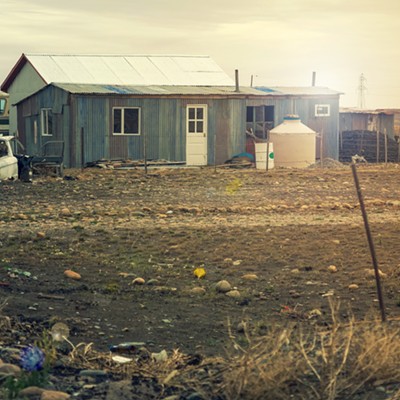It's an election year, meaning that we'll again be bombarded with ballot initiatives big and small, some profoundly destructive, others just petty and mean, but almost all adding their weight to the mass of nonsense that threatens to crush the foundation of the American legislative process. What many consider to be direct democracy is, instead, turning into something quite perverse.
Founding Father James Madison warned of the "tyranny of the majority." A student of ancient history, he believed that Athens, which practiced direct democracy, was shaky, at best, and, in the grand scheme of history, didn't really last very long. When Benjamin Franklin was asked what kind of government had been created by the Constitution, he replied, "A republic, if you can keep it."
Certainly, our republican form of government is cumbersome, but its makeup and process probably serve to keep cities, counties, states and the nation from bouncing back and forth wildly like a pinball trapped in a corridor of bumpers. (That's a dated reference; the modern version would be like "bouncing back and forth like John McCain's stance on cap-and-trade, which he originally introduced in the Senate—along with Joe Lieberman—in 2003 and now vehemently opposes as a tax on poor, beleaguered Big Business.")
Unfortunately, that republican (small "r") way of doing things is under all-out assault in many parts of America, including right here in Arizona. The ballot initiative has become the political weapon of choice for the wealthy and the whiners, the kooks and the creeps, the faux patriots and the professional againsters. And it looks like 2010 will bring a bumper crop of ballot initiatives in a number of states.
The initiative process had relatively noble beginnings. In post-Civil War America, the robber barons and the railroads controlled state legislatures (and much of the Congress) for several decades. Any political "differences" between parties amounted to which side was more corrupt or more corruptible. The direct ballot initiative was seen as the only way to effect positive political change. While these days, California is generally first (and worst) when it comes to political trends, the first state to allow ballot initiatives that were voted on directly by the people was actually South Dakota in 1898. (California first allowed it in 1911, and the initiative process was written into Arizona's constitution when statehood was achieved in 1912.)
The original model was that of Switzerland, which had used some form of direct democracy since the fourth century. The Swiss used the process infrequently and, not surprisingly, conservatively. The Swiss system has four major safeguards built in. Any measure has to be passed by a majority of all voters and must win in a majority of the cantons (states). The government has to take an official stance on each measure and has the option of placing a counter-measure on the ballot. And any initiative cannot violate any treaties or international law.
Despite all that, just a couple months ago, Switzerland voted to ban Muslim minarets from any structure built in the country henceforth.
And those are the staid and composed Swiss. Just imagine what some pissed-off Arizonans might do. Actually, the results are in on that and they're not good. For the past quarter-century or so, Arizonans have been passing ballot initiatives as though they were voting online as to whether Rihanna's new hairdo is a keeper. They often vote emotionally without the desire (or perhaps even the ability) to look at the long-term effects of their vote. Consequently, the state and its legislature are hamstrung by a series of votes that, taken independently, appear well-meaning and relatively painless, but when taken as a whole, have helped bring Arizona to its knees during these tough economic times.
For those who have been in the state for a relatively short time, here's some background. Without going into specifics, the chronology is this:
1. Arizona's voters passed an initiative.
2. The state legislature didn't like it and decided to tinker with it.
3. So the next time, the voters passed something that said that any passed initiative is sacrosanct and can't be touched by the legislature.
While I am certainly no fan of the current state legislature (which has all too often fiddled while Arizona burns), I have to agree that the members' jobs are made exponentially more difficult by the fact that they can only deal with about one-third of the actual state budget, with the other two-thirds being off limits after having been put in place by the initiative process.
As suggested by some, it would be wise for Arizonans to revisit passed ballot initiatives every 10 or 20 years. Perhaps in that time, there will have been profound changes in the state's demographics or its political or financial outlook. For example, the Clean Elections law that Arizonans passed certainly hasn't proven to be the panacea that its initial backers promised it would be.
Voters are in an ugly mood; that's fine. But perhaps they could better use that anger to vote some legislative bums out rather than using the ballot initiative process to vote some long-term Dumbs in.







